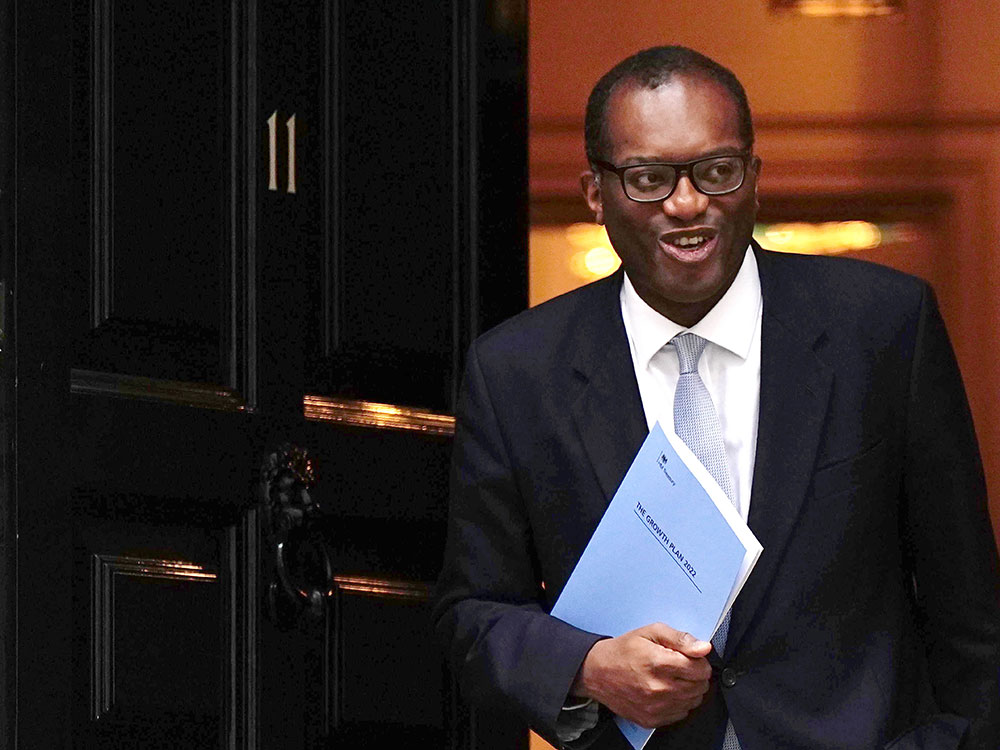Chancellor Kwasi Kwarteng abolished the top rate of income tax for the highest earners as he spent tens of billions of pounds in a “gamble” to drive up growth during a cost-of-living crisis.
In a raft of major financial announcements today (Friday), Mr Kwarteng brought forward the planned cut to the basic rate of income tax to 19p in the pound a year early to April and reduced stamp duty for homebuyers.
He argued tax cuts are “central to solving the riddle of growth” as he confirmed plans to axe the cap on bankers’ bonuses while adding restrictions to the welfare system.
So what measures did he introduce?
- Income tax –Mr Kwarteng said he will cut the basic rate of income tax to 19p in April 2023, one year early
- Stamp duty – Mr Kwarteng confirmed a cut in stamp duty from Friday. At present, there is no stamp duty to pay on the first £125,000 of a property’s value. It will be doubled to £250,000
- National insurance – the health and social care levy, and other planned rises in national insurance contributions, would be cancelled from “the earliest possible moment”, 6 November
- Top earners – the top rate of income tax, the 45% rate for earnings over £150,000, is being abolished altogether
- Bankers’ bonuses – the cap on bankers’ bonuses will be axed, to reaffirm the UK’s status as the world’s financial services centre
- Corporation tax – the planned rise in corporation tax to 25% would be cancelled. It will remain at 19%, so that the UK “will have the lowest rate of corporation tax in the G20”
- Alcohol – the planned alcohol duty rises will be cancelled, Mr Kwarteng said, and the Government will introduce VAT-free shopping for tourists
- Trade unions – the Government will legislate so unions wanting to strike will have to put pay offers to a vote
- Investment zones – the Chancellor announced the Government’s plans for new low-tax “investment zones”, that will allow planning rules to be relaxed and will reduce business taxes to encourage investment.
The already announced plan to cap energy price increases for householders and businesses will cost £60 billion for the six months from October.
[tptn_list limit=3 daily=1 hour_range=1]
